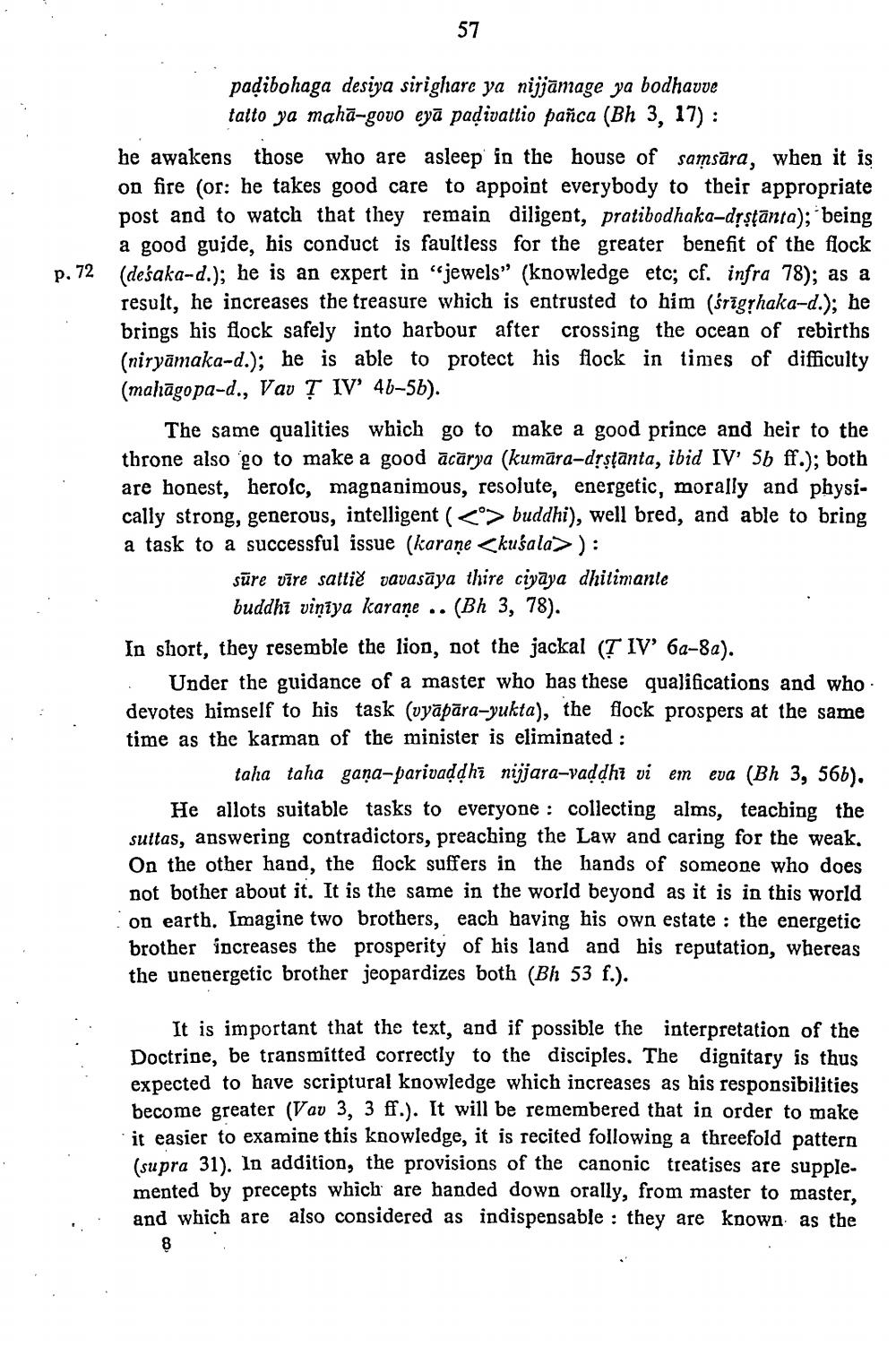________________
57
p.72
padibohaga desiya sirighare ya nijjāmage ya bodhavve
talto ya mahā-govo eyā padivattio pañca (Bh 3, 17) : he awakens those who are asleep in the house of samsāra, when it is on fire (or: he takes good care to appoint everybody to their appropriate post and to watch that they remain diligent, pratibodhaka-dršļānta); being a good guide, his conduct is faultless for the greater benefit of the flock (deśaka-d.); he is an expert in "jewels" (knowledge etc; cf. infra 78); as a result, he increases the treasure which is entrusted to him (śrīgļhaka-d.); he brings his flock safely into harbour after crossing the ocean of rebirths (niryāmaka-d.); he is able to protect his flock in times of difficulty (mahāgopa-d., Vav Ţ IV 46–5b).
The same qualities which go to make a good prince and heir to the throne also go to make a good ācārya (kumāra-drsțānta, ibid IV: 5b ff.); both are honest, heroic, magnanimous, resolute, energetic, morally and physically strong, generous, intelligent (<°> buddhi), well bred, and able to bring a task to a successful issue (karame <kusala>):
süre vīre sattie vavasāya thire ciyāya dhitimanle
buddhī viņiya karane .. (Bh 3, 78). In short, they resemble the lion, not the jackal (T IV 6a-8a).
Under the guidance of a master who has these qualifications and who devotes himself to his task (vyāpāra-yukta), the flock prospers at the same time as the karman of the minister is eliminated :
taha taha gana-parivaddhi nijjara-vaddhi vi em eva (Bh 3, 56b). He allots suitable tasks to everyone : collecting alms, teaching the sultas, answering contradictors, preaching the Law and caring for the weak. On the other hand, the flock suffers in the hands of someone who does not bother about it. It is the same in the world beyond as it is in this world on earth. Imagine two brothers, each having his own estate : the energetic brother increases the prosperity of his land and his reputation, whereas the unenergetic brother jeopardizes both (Bh 53 f.).
It is important that the text, and if possible the interpretation of the Doctrine, be transmitted correctly to the disciples. The dignitary is thus expected to have scriptural knowledge which increases as his responsibilities become greater (Vav 3, 3 ff.). It will be remembered that in order to make it easier to examine this knowledge, it is recited following a threefold pattern (supra 31). In addition, the provisions of the canonic treatises are supplemented by precepts which are handed down orally, from master to master, and which are also considered as indispensable : they are known as the
8




